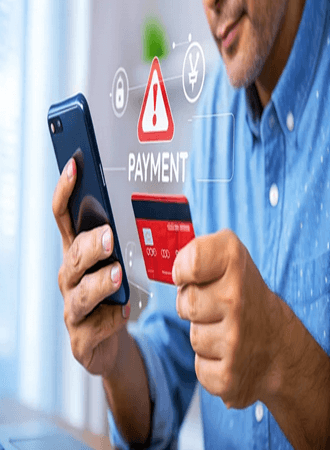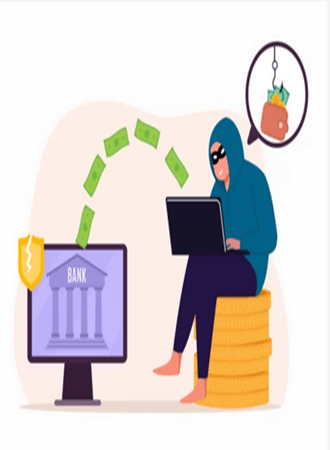
How to Avoid Small Business Loan Scams
November 25, 2025, 2:09 pm
If you’re a small business owner, then you’re already aware of how difficult it can be to build, expand, and operate your own business.
Getting a small business loan can be an ordeal all its own – and sadly, there are a number of scams out there that can harm your business, even permanently. In fact, small businesses are the most common victims of business financial fraud, with 31.8% of them becoming victims of a scam.

How to Avoid Small Business Loan Scams
There are, however, some simple tips to protecting yourself from a small business loan scam, and with a little research and work you can ensure you’re not a victim. First, let’s take a look at what kinds of scams you might see as a small business owner looking for a loan.
Types of Business Loan Scams
You’ve probably seen the ads – or even received them in your mailbox. Lenders claim they can get you large amounts of money fast, even without anything securing the loan. Bad credit? No problem, they’ll tell you. It seems like no matter how bad your financial situation is, there’s a company that claims it is willing to offer you huge sums of unsecured money.
Other companies will attempt to sell you packets of information on funding sources. They often claim to have information not available elsewhere, and for a fee they’re willing to share that information with you.
Equipment loan/lease programs are also a popular scam. You might receive a letter claiming that you are qualified for an equipment loan or lease, and all you need to do is send in your first and last month’s payment. There’s only one problem – you’ll never receive the equipment, and never hear from the company again.

You may be contacted by a so-called “investor,” who claims to be representing a financial fund or a wealthy individual who claims to want to invest in your business – as soon as a bit of paperwork is done. Several fees (and maybe some confidential information about your business) later, you’ve done a lot of work with no return.
Some scammers aren’t after your money; these criminals want your personal information, such as your date of birth, mother’s maiden name, or even banking and credit card information, which they’ll use to either make unauthorized purchases or steal your identity.

Ways to Recognize a Business Loan Scam
The hard truth is that scammers are always coming up with new ideas, and new ways to steal from you. Many of these scams share characteristics, however, and if you can recognize those – and use some simple best practices when dealing with companies – you can ensure your business isn’t the next one harmed by thieves.
It’s important to note that like it or not, credit rating and the financial situation of your business play a huge role in whether you can get a loan from a reputable lender. If a lender says you “can be approved” for a large sum of money – unsecured – regardless of your past credit history, that’s a good sign that you’re dealing with a disreputable company. The proof of that can be found in the fine print – and the application fees. If you are ever asked during a loan application process for any kind of upfront fee, regardless of what you’re told it’s for, walk away.

If a company claims that they “guarantee” your loan, that’s a positive sign of a scam. No reputable financial institution will guarantee acceptance of a loan before they ever see your application. It’s that simple. When you see the word “guaranteed” on an ad – especially if it says you’ll be approved regardless of credit – you should steer clear.
You can also look at the address of the company who’s contacting you. Many foreign scammers will rent a post office box in the United States in order to appear genuine. Ask for a physical address – every real lending company has one, even if they operate primarily online. If the only address they offer is a PO Box, you have your answer.
If you’re offered a funding kit, in which you’re promised a long list of ‘guaranteed’ lenders who want to lend you money, understand that in most cases the information you’re given is false or misleading – and that’s if you get it at all. Once you’ve paid for the product, in many cases you won’t even receive it; your best bet is to simply do your own research on lenders instead of getting scammed for a “kit.”
P.S. Are you thinking of taking a business loan? Use our Financial Calculators Dashboard to see if you can afford the loan
[Ed.Note. Jeff Gitlen writes about a wide range of finance topics including everything from student loans to credit cards to small business financing. Jeff's work has been featured on a number of sites including LendEDU, Bloomberg, CNBC, Forbes, Market Watch, and more.]












Share This Article: